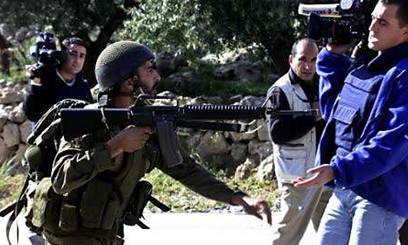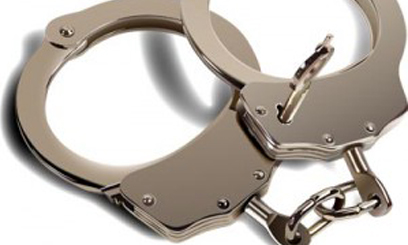 STOCKHOLM, Oct 17 – Swedish Foreign Minister Carl Bildt has come under fire for not doing enough to help two Swedish journalists held in Ethiopia on terrorism charges, amid reports that their investigations could damage him.
STOCKHOLM, Oct 17 – Swedish Foreign Minister Carl Bildt has come under fire for not doing enough to help two Swedish journalists held in Ethiopia on terrorism charges, amid reports that their investigations could damage him.
Photographer Johan Persson, 29, and reporter Martin Schibbye, 30, both freelancers, were arrested in Ethiopia’s Ogaden region on July 1 after entering the country from Somalia with the rebel Ogaden National Liberation Front (ONLF).
Persson and Schibbye have been charged with engaging in terrorist activities, abetting an illegal terrorist group and entering the country illegally.
Their trial is set to open on Tuesday, and they risk up to 20 years in prison if convicted.
Bildt enraged the media, and others, when he failed to immediately demand the release of the pair and implied shortly after their arrest that they only had themselves to blame since “they were in a zone where we have issued a travel warning.”
He has since called on Ethiopia to free the pair, but media and human rights organisations have blasted the foreign minister for dragging his feet and failing to secure their release in the crucial first days of their detention.
The case took on a new dimension when Swedish media in September revealed the pair were in the remote southeastern region of Ogaden, populated mainly by ethnic Somalis, to investigate the activities of a company affiliated to Lundin Petroleum, a Swedish oil group.
Bildt served as a Lundin board member from 2000 until 2006 when he was appointed foreign minister.
Several media have said Persson and Schibbye were in Ogaden to report on human rights abuses being committed in Ogaden by the Ethiopian military to protect the foreign oil operations — including Lundin’s — in their war against the ONLF rebels.
The ONLF, formed in 1984, has been fighting for the independence of Ogaden, which the rebels say has been marginalised by Addis Ababa.
Kerstin Lundell, the author of a book on Lundin’s activities in Africa, wrote in a recent newspaper article that “the fact that Carl Bildt has reason to hide what is going on in Ogaden could explain why these journalists are still in prison.”
“Innocent civilians are being jailed, tortured, raped and killed because the military thinks they may hurt the oil companies’ operations. Lundin Petroleum is no longer there, its activities have been taken over by Africa Oil. But this company is a part of the Lundin sphere,” she wrote in Sweden’s paper of reference Dagens Nyheter on September 13.
Bildt has remained tight-lipped on the subject amid the government’s expressed policy of silent diplomacy.
Pressed to explain his role in Lundin’s operations by several media in recent weeks, Bildt told Dagens Nyheter on Sunday that he was no longer a board member when Lundin was granted a concession for oil exploration in Ethiopia.
He has previously denounced what he calls a “political campaign” against him.
Desiree Pethrus, a member of parliament for the government coalition member Christian Democrats, on Sunday lamented Bildt’s handling of the matter.
“I think he could have made more political statements. It is of course a consular issue, but it’s also a political issue and I think Bildt should have picked up on that,” she told Dagens Nyheter.
The editor-in-chief of news magazine Filter which Persson and Schibbye were on assignment for, Matthias Goeransson, has meanwhile reacted strongly to the Swedish government’s lack of involvement and its claim that the issue is not a political one but a consular one.
“It’s very, very strange the way Carl Bildt and (Prime Minister) Fredrik Reinfeldt… have claimed this is not a political issue. It’s totally crazy. Because Ethiopia has made it a political issue,” he told AFP.
Ethiopian Prime Minister Meles Zenawi, interviewed during a recent visit to Oslo, told Norwegian daily Aftenposten the pair were “at the very least, messenger boys of a terrorist organisation. They are not journalists.”
“Why would a journalist be involved with a terrorist organisation and enter a country with that terrorist organisation, escorted by armed terrorists, and participate in a fighting in which this terrorist organization was involved? If that is journalism, I don’t know what terrorism is.”
His comments have raised fears the pair will not be given a fair trial.
According to the press freedom watchdog Committee to Protect Journalists, Ethiopia is one of Africa’s most restrictive countries for media.










































